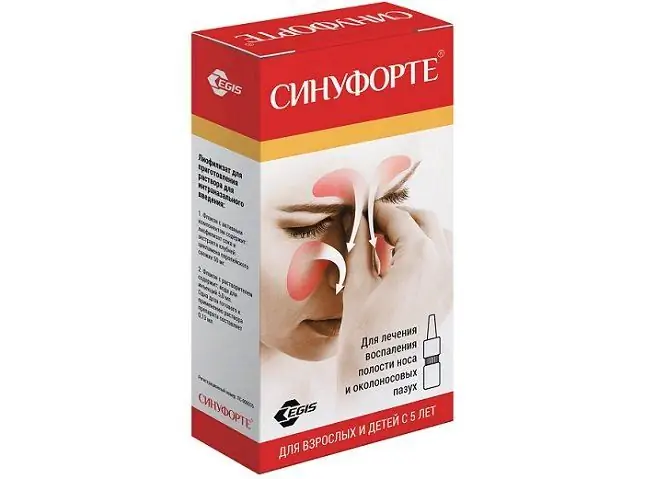- Author Rachel Wainwright wainwright@abchealthonline.com.
- Public 2023-12-15 07:39.
- Last modified 2025-11-02 20:14.
The anti-cold drug Oscillococcinum has been studied by the international Cochrane research base
The Cochrane Scientific Society conducts collaborative research with the scientific community around the world to help clinicians choose the best treatment solutions for a variety of conditions. The findings are based on reliable analyzes of drug action studies and patient observations. One of the latest meta-analyzes was the analysis of a series of studies carried out on the drug Oscillococcinum®, which belongs to the group of cold remedies.

Cochrane is an international, non-profit organization that publishes policy reviews of primary evidence-based drug efficacy research. Observational data and meta-analyzes are regularly updated, including each time the findings from the latest emerging studies. One of the new published reviews in the study of a group of drugs for the prevention and treatment of colds presents material on the effectiveness of Oscillococcinum in the prevention and / or treatment of influenza and influenza-like diseases.
It should be noted that this drug has become the 5th drug in the anti-cold group out of a large number of existing drugs. its evidence base for effectiveness has reached a sufficient level to conduct metanalysis. Other drugs in this direction are: amantadine, rimantadine, zanamavir and oseltamivir.
The interest of researchers is due to the fact that these drugs for similar purposes are recognized as "moderately effective" in terms of reducing the period of manifestation of symptoms and the course of the disease, and also have a number of established side effects. Therefore, it is important to continue the search for alternative or additional methods of prevention and treatment of ARVI and influenza among different age groups.
The studies conducted included 6 clinical trials of the drug: 2 clinical trials on prevention (a study conducted in Russia with the participation of more than 300 young and middle-aged people) and 4 clinical trials on treatment (conducted in Germany and France with the participation of more than 1000 adolescents and adults). All studies were carried out according to the principle of blind, placebo-controlled, randomized studies, which is recognized as one of the most reliable methods.
The authors of the metanalysis noted that the results obtained do not exclude the clinically useful effect of Oscillococcinum® in the treatment of colds. More confident conclusions require further scientific work. Of no small importance is the conclusion about the proven absence of clinically significant harm of the drug to patients.
The conclusions of the researchers confirm the increased interest in this homeopathic remedy in the face of the constant search for more and more effective methods of treating colds. Of great importance is the very possibility of analyzing the effectiveness and safety of a drug from the standpoint of evidence-based medicine. It does not exist today in all common drugs. At the moment, Cochrane has no conclusions about the cough medicines produced in Russia, as there is no sufficient basis for analysis.
The conclusions made regarding the effectiveness of Oscillococcinum are very cautious, but differ in a positive way compared to the conclusions of studies of other drugs.
Homeopathic medicines entered medical practice much earlier than most of the currently used medicines. For clinicians new to using homeopathic medicines to prevent and treat colds, getting a Cochrane review with such positive results can be a strong case for their use.
1. Cochrane Review -
Homeopathic Oscillococcinum® for preventing and treating influenza and influenza-like illness
Found a mistake in the text? Select it and press Ctrl + Enter.






